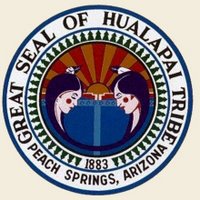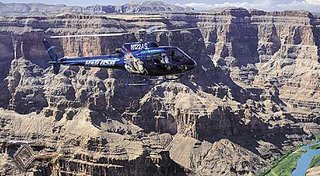In Citable No. 18, TTAB Draws Distinction between Fraud and Nonuse
With the April INTA Roundtable focusing on fraud, and with a Trademark Reporter article on fraud reportedly on the way, what better time to contemplate a new TTAB non-fraud ruling? In yet another citable decision, the Board granted in part an opposer's motion for summary judgment on the ground of nonuse of the subject mark for some of applicant's services. Because the opposer did not allege fraud, however, the Board did not reach the issue of whether applicant's inclusion of the "extra services" in its use-based application constituted fraud (which would have rendered the entire application void ab initio). Grand Canyon West Ranch, LLC v. Hualapai Tribe, 78 USPQ2d 1696 (TTAB 2006).

The Hualapai Tribe filed a Section 1(a) application to register the mark GRAND CANYON WEST for "airport services; air transportation services; arranging for recreational travel tours and providing related transportation of passengers by air, boat, raft, rail, tram, bus, motorized on-road and off-road vehicles, non-motorized vehicles featuring bicycles, and domestic animals." Opposer Grand Canyon West Ranch claimed, inter alia, that Applicant had not used the mark on all of these services as of the application filing date.
When the Tribe moved to amend its recitation of services to delete "rail, tram, non-motorized vehicles featuring bicycles, and domestic animals," Opposer moved for summary judgment on its nonuse claim, asserting that the application as a whole must fail.
The Board, however, disagreed: "The case law is clear that holding an application to be void is an appropriate remedy when the pleaded ground either is fraud, or that the applicant has not used the applied-for mark on any of the goods or services identified in the application prior to the filing of the application." Here, Opposer did not plead fraud as a ground for opposition.
The Board held that "as long as the mark was used on some of the identified goods or services as of the filing of the application, the application is not void in its entirety."

The Board distinguished between fraud and nonuse by pointing out that in the latter, "a defendant's intent is not an element of a claim that a mark was not used on certain of the identified goods or services, nor is an enhanced standard of proof required."
"Therefore, in the absence of a fraud claim, an applicant who bases its application on Section 1(a) (use in commerce) but who did not use the mark on some or all of the goods or services identified in the application may 'cure' this problem by amending its basis to Section 1(b) (intent to use)."
In view of the "nature of opposer's allegations," the Board found applicant's proposed amendment appropriate. It therefore granted the motion to amend, and it partially granted Opposer's summary judgment to a that same extent.
In a footnote, the Board noted that the deletion of these services:
"does not preclude opposer from moving to amend its notice of opposition to assert a ground of fraud, ... assuming, of course, that opposer has a good faith belief that such a ground is warranted. Medinol v. Neuro Vasx, supra, at 1208 ('deletion of the goods upon which the mark has not yet been used does not remedy an alleged fraud upon the Office.')." [TTABlog question: would such a motion to amend be timely or too late? See Turbo Sportswear, Inc. v. Marmot Mountain Ltd., 77 USPQ2d 1152 (TTAB 2005), blogged here.]The Board re-set testimony dates so that the case may proceed on the remaining issue of mere descriptiveness.
TTABlog comment: So what does this case mean, if anything, for the Board's current "fraud" jurisprudence? If an applicant deletes from its use-based application "extra" goods or services after an opposition has been filed but before a claim of fraud is made, will a fraud ruling be avoided? The Board said no in Tequila Cazedores, S.A. de C.V. v. Tequila Centinela, S.A. de C.V., Opposition No. 91125436 (February 24, 2004) [not citable]. What if an applicant filed such an amendment before the opposition was filed? Would that eliminate the fraud possibility? I wouldn't count on it.
In Tequila Cazedores, the Board acknowledged that there may be "circumstances where a mistake as to use is made that do not constitute fraud (for example, an applicant believes its use is sufficient to support a use-based application when it is not)." But the Board stressed that "[a]t the time an applicant files an application under Section 1(a), the applicant must know if it is using the mark on the goods." If it isn't, the applicant better have a darned good explanation.
In my December 2004 article entitled "The Board's-Eye View: Six Potential Pitfalls in Trademark Prosecution," I reviewed six recent fraud decisions and came to the following conclusion:
"these six TTAB decisions underscore a fundamental principle: when an applicant makes a verified or sworn statement regarding use of its mark, that statement had better be completely true. False statements will not be readily excused. Lack of legal advice, misunderstanding of the statutory requirements, language difficulties, and/or clever wordplay will not provide a defense to a charge of fraud. Nor will the (wholly expected) assertion of lack of fraudulent intent."
If I had a client with a potentially troublesome application, I would bite the bullet and file a new application right away. I don't think the Board's recent fraud rulings, nor the non-fraud ruling discussed in this posting, give any reason for optimism that the application, even if amended immediately, could survive a subsequent fraud challenge.
Text Copyright John L. Welch 2006.




0 Comments:
Post a Comment
<< Home